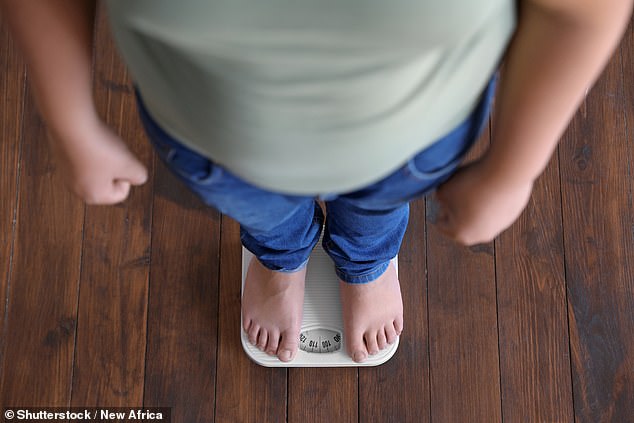A leading Australian medical organisation has sparked outrage after claiming that all schoolchildren in the country should be weighed.
The Australian College of Nursing (ACN) has recommended that children have easy access to a registered school nurse “to provide care and guidance to ensure maintenance of a healthy weight”.
ACN Acting Chief Executive Leanne Boyd said the proportion of Australian children who are overweight (currently 26 per cent) continues to rise.
She said nurses are best positioned to identify at-risk children, educate families and combat weight stigma.
“Nurse-led interventions, which have been shown to be effective in a variety of settings, offer a flexible and cost-effective solution,” said Professor Boyd.
“Supporting nurses with training, resources and leadership opportunities is crucial to maximizing impact in the fight against childhood obesity.”
But Sydney mum Kate McKenna criticised ACN’s thinking on the issue, telling Daily Mail Australia: “What is the link between taking a measurement and changing the results?”
“What is your plan after the measurement? What will you do with the data? Is it necessary to weigh children to know if they are fat?”
A leading Australian medical organisation has caused outrage by claiming that all schoolchildren in the country should be weighed. File image
The ACN, in its position statement Working with Children Above a Healthy Weight: Nurse-Led Interventions, recommends “collection and discussion of height and weight data for all children.”
It also wants nurses to be allowed to “identify children at risk and provide timely and sensitive interventions targeting the entire family to improve eating and activity behaviors.”
This would require ensuring that “every school-aged child has access to a qualified nurse,” Professor Boyd said.
“Measuring a child’s weight every day is not going to cause them to lose weight,” McKenna said.
‘Imagine the poor fat children the day the nurse comes to school. The lice nurse becomes the fat nurse.’
However, the plan received some support online: one commenter on X wrote that it was the parents’ fault if their children were overweight.
“Fat, lazy parents produce fat, lazy children. To me, this is child abuse,” they wrote.
“We were lean in the 1950s. The future cost to the health care system is huge.”
Although the plan to weigh children at school is being pushed by ACN experts, other experts disagree.
Dr Zali Yager, from body image advocacy group The Embrace Collective, said weighing children and identifying them as “overweight” can lead to feelings of shame and stigma.

The Australian College of Nursing has recommended that children be given immediate access to a registered nurse “to provide care and guidance to ensure maintenance of a healthy weight.” File image
“I support the idea of ensuring that all school-aged children have access to a qualified nurse, but I suggest this should be to support their health, not focus on their weight,” she said. The Sydney Morning Herald.
‘The United States is currently backtracking on its widespread BMI screening programs because they were not helpful in changing weight but were very damaging to children’s psychological health.’
She added that weighing children at school could have the opposite effect and lead to eating disorders, avoidance of exercise and weight gain.
Lisa Chalmers, director of health and wellbeing at Barker College in Hornsby, a northern Sydney suburb, said focusing on a child’s weight could raise concerns about body image and make parents feel judged.
“We don’t have scales at our school health center,” he explained.
‘We talked about how students can bring out the best in our brains and bodies, and how certain foods make them feel rather than look good.
“We don’t focus on physical appearance.”
The number of obese Australians rose from 3.9 million in 2012 to 6.3 million in 2022, according to a report by the Obesity Collective earlier this year.
The group said being overweight or obese was linked to dozens of diseases, including 17 types of cancer, cardiovascular disease, musculoskeletal conditions, type 2 diabetes, dementia, asthma and chronic kidney disease.
(tags to translate)dailymail

